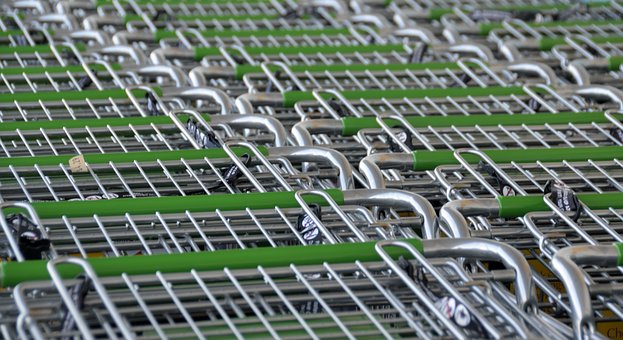A dour month as uncertainty hits Scottish retail sales
February saw Scottish retail sales decrease by 0.8 per cent on a like-for-like basis compared with February 2018, when they had increased by 0.4 per cent and below the three-month average of -0.1 per cent.

According to the latest SRC-KPMG Scottish Retail Sales Monitor, in February Total sales in Scotland decreased by 0.1 per cent compared with February 2018, when they had increased by 0.7 per cent.
This is below the three-month and twelve-month averages of 0.3 per cent and 0.4 per cent, respectively. Adjusted for inflation measured at 0.7 per cent by the BRC-Nielsen Shop Price Index (SPI), February decreased 0.8 per cent.
Total Food sales in February increased 2.6 per cent versus February 2018, when they had increased by 3.5 per cent.
This is below both the 3-month and the 12-month averages of 2.8 per cent and 3.6 per cent, respectively.
The 3-month and 12-month averages are above the UK’s levels of 2.4 per cent and 2.9 per cent, respectively.
The data also showed that Total Non-Food sales decreased 2.3 per cent last month compared to February 2018, when they had decreased by 1.6 per cent. This is below both the 3-month and 12-month averages of -1.7 per cent and -2.1 per cent, respectively.
Adjusted for the estimated effect of Online sales, Total Non-Food sales decreased by 0.6 per cent in February versus February 2018, when they had decreased by 0.4 per cent. On a three-month basis, the Online-adjusted Total Non-Food sales were flat, above the UK Non-Food average of -0.4 per cent.
Ewan MacDonald Russell, head of policy & external affairs at the Scottish Retail Consortium, said:“It was a dreich February for Scottish retailers as sales fell back a real terms fall of 0.8 per cent. That’s below the quarterly and annual trends and shows a pattern of slowing sales as economic pressures cut into consumer spending.
“Food sales continue to show growth, albeit that’s still as much a consequence of food price inflation of 1.6 per cent. However, that growth was more than offset by further decline in non-food sales, with discretionary products performing particularly poorly. Even romance associated with St Valentine’s Day wasn’t enough to encourage consumers into stores, with clothing and fragrance sales weak.
“Our concern is the drumbeat of negative political news is influencing shoppers’ decisions. Between Brexit uncertainty and news of further taxes and levies in the Scottish budget accord; consumers are understandably cautious about committing to spending. Politicians from all parties should be careful to keep their language temperate in coming weeks, and in particular, come together to thrash out a deal to avoid the risks of a disorderly exit from the EU. Doing so would be a positive step which should help to reassure nervous customers.”with
Paul Martin, UK Head of Retail at KPMG said:“Scottish retail figures recovered slightly in January, but it wasn’t to last, with like-for-like sales falling 0.8 per cent in February compared to last year. Consumer spending has remained relatively resilient until now, but it appears ongoing political and economic uncertainty may be affecting shoppers’ spending habits.
“Scotland’s high streets were not feeling the love this February, with Valentine’s Day having less of an impact on sales than previous years, and while food sales grew slightly – 1 per cent taking into account inflation – this was below the 12-month average.
“Non-food sales fell in February and while this trend is nothing new, retailers will have to continue treading the fine line between generating sales and keeping costs down.”



